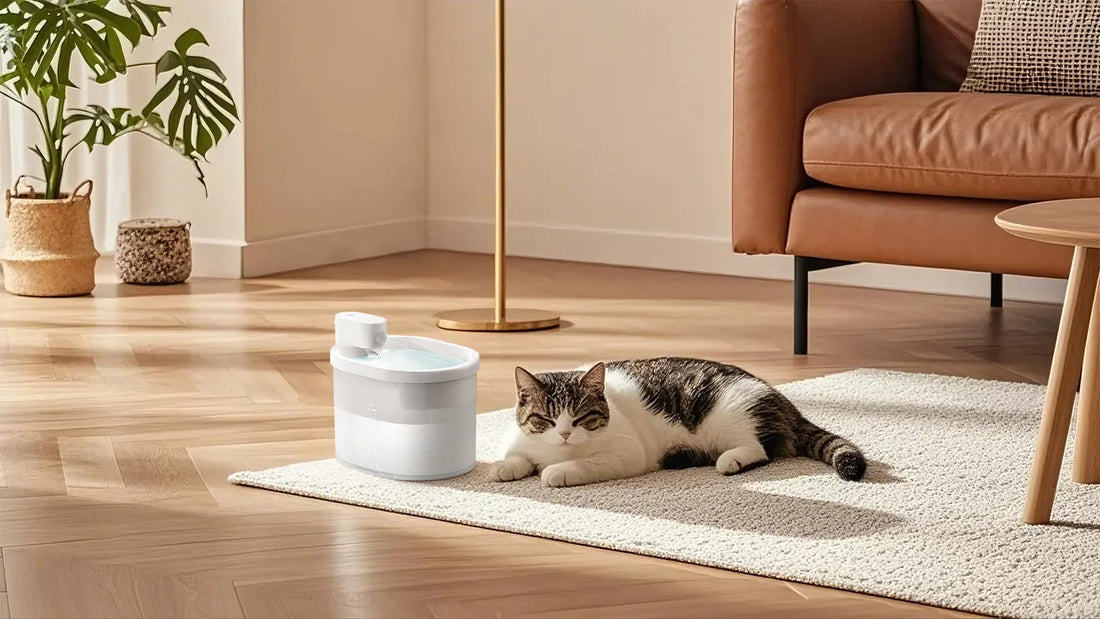If you've noticed your cat drinking more water than usual, it's natural to feel concerned. Cat excessive drinking can be a sign of underlying health issues or environmental factors that need attention. Understanding the causes, symptoms, and solutions is crucial for ensuring your feline friend's well-being.
What is Considered Excessive Drinking in Cats?
Cats typically consume about 60-80 milliliters of water per kilogram of body weight daily. However, this can vary based on their diet, activity level, and environmental conditions. If your cat is drinking significantly more than this, it may be considered excessive. Monitoring their water intake and behavior can help you determine if there's a problem.
Common Causes of Cat Excessive Drinking
Several factors can lead to increased water consumption in cats. These include:
- Dehydration: Hot weather or lack of access to fresh water can cause dehydration, prompting your cat to drink more.
- Diet: Dry food diets may lead to increased thirst as cats seek to compensate for the lack of moisture in their meals.
- Medical Conditions: Conditions such as diabetes, kidney disease, or hyperthyroidism can cause excessive drinking.
- Stress or Anxiety: Changes in the household or environment can lead to stress, which may manifest as increased water consumption.
Symptoms to Watch For
Excessive drinking is often accompanied by other symptoms that can indicate an underlying issue. These include:
- Frequent urination
- Lethargy or decreased activity
- Weight loss or gain
- Changes in appetite
- Vomiting or diarrhea
If you notice any of these signs, it's essential to consult a veterinarian for a thorough evaluation.
Diagnosing the Problem
A veterinarian will perform a series of tests to determine the cause of your cat's excessive drinking. These may include blood tests, urine analysis, and imaging studies. Early diagnosis is key to managing any potential health issues effectively.
Treatment and Management
Treatment will depend on the underlying cause of the excessive drinking. For example:
- Dehydration: Ensure your cat has constant access to fresh water and consider adding wet food to their diet.
- Medical Conditions: Follow your veterinarian's treatment plan, which may include medications, dietary changes, or other interventions.
- Stress: Identify and address the source of stress, and consider using calming products or techniques to help your cat relax.
Preventive Measures
Preventing excessive drinking involves maintaining a healthy lifestyle for your cat. This includes:
- Providing a balanced diet with adequate moisture content
- Ensuring access to clean, fresh water at all times
- Regular veterinary check-ups to catch potential issues early
- Creating a stress-free environment for your cat
By taking these steps, you can help reduce the risk of your cat developing excessive drinking habits.
When to Seek Veterinary Help
If your cat's excessive drinking persists or is accompanied by other concerning symptoms, it's crucial to seek veterinary help promptly. Early intervention can make a significant difference in your cat's health and quality of life.
Cat excessive drinking is a behavior that should not be ignored. By understanding the potential causes and taking appropriate action, you can ensure your feline companion remains healthy and happy. Pay attention to their habits, and don't hesitate to consult a professional if you have any concerns.














